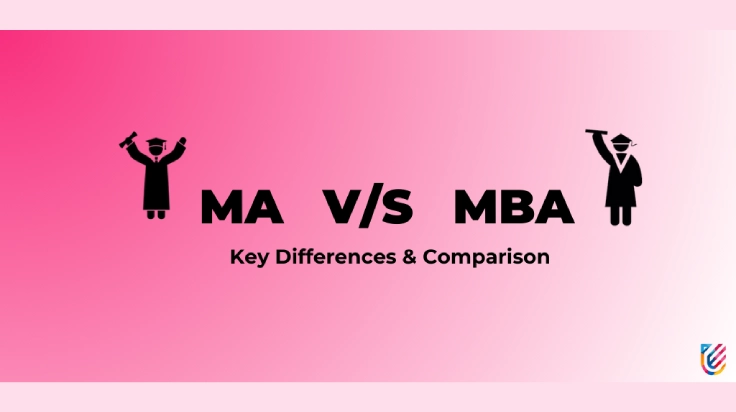BA vs. B.Sc: Which Undergraduate Degree Is Right for You?
- UPES Editorial Team
- Published 13/12/2024

Table of Contents:
Choosing the right undergraduate degree is an important decision that can shape your future career path. The two most popular options for students in the arts and sciences stream are BA (Bachelor of Arts) and B.Sc (Bachelor of Science). Both degrees come with their own set of advantages, course structures, and career opportunities. This blog will explore the differences, similarities, course structures, specializations, career scope, and the key factors to consider before making your choice.
Core Differences Between BA and B.Sc
BA (Bachelor of Arts) focuses on liberal arts and humanities, offering a broad and flexible curriculum. It is ideal for students interested in subjects like literature, languages, history, political science, sociology, and fine arts.
B.Sc (Bachelor of Science), on the other hand, centers around scientific and technical education. It is designed for students who have a keen interest in subjects like physics, chemistry, biology, mathematics, and computer science.
Become future-ready with our Liberal Studies programs
Know MoreSimilarities Between BA and B.Sc
Both BA and B.Sc degrees require three to four years of study, depending on the country and university. They can lead to further educational opportunities such as master's programs, certifications, or professional courses.
Course Structure & Specializations Offered
BA Course Structure:
- Focuses on humanities and social sciences.
- Allows for a broader range of electives and interdisciplinary subjects.
- Specializations include English Literature, History, Psychology, Political Science, and more.
B.Sc Course Structure:
- Emphasizes theoretical and practical knowledge of scientific concepts.
- Offers lab work, research projects, and experiments as part of the curriculum.
- Specializations include Physics, Chemistry, Biology, Environmental Science, and Computer Science.
Key Aspects to Consider Before Choosing
- Interest in Subject Matter: Opt for BA if you enjoy subjects like history and literature. Choose B.Sc if you are passionate about physics, chemistry, or technical fields.
- Career Aspirations: Determine where you want to see yourself in 5-10 years. This will help you align your degree with your professional goals.
- Future Studies and Specializations: Decide if you plan on pursuing further studies and in which field. This will guide your choice of an undergraduate program.
Future Career Scope and Prospects of Higher Studies
Career Paths for BA Graduates:
- Teaching and academia
- Content writing and journalism
- Public relations and communications
- Social work and public policy
Career Paths for B.Sc Graduates:
- Research and development
- Healthcare and clinical professions
- Data analysis and information technology
- Engineering and technical consulting
Prospects of Higher Studies:
Both degrees provide ample opportunities for postgraduate studies. BA graduates can pursue an MA (Master of Arts) or professional courses like MBA or LLB. B.Sc graduates can opt for M.Sc (Master of Science), M.Tech, or other technical certifications. Additionally, both can lead to Ph.D. programs, depending on the area of interest.
Skills Acquired Through Programs
BA Degree Skills:
- Critical thinking and analytical skills
- Creative problem-solving
- Effective communication and writing
- Understanding of cultural and social contexts
B.Sc Degree Skills:
- Technical and practical application of knowledge
- Analytical and quantitative skills
- Problem-solving in scientific scenarios
- Data analysis and logical reasoning
Salary Comparison
BA graduates generally start with salaries ranging from $30,000 to $50,000 annually, depending on their field and industry. Positions in communication, media, and public relations can offer higher starting salaries.
B.Sc graduates may start with a range from $35,000 to $70,000 annually, especially if they work in healthcare, IT, or engineering. The demand for technical skills can lead to higher compensation as experience increases.
Industries to Work In
BA Graduates can find work in:
- Education and academia
- Media and journalism
- Marketing and advertising
- Public administration and policy
B.Sc Graduates are often employed in:
- Scientific research institutions
- Healthcare and pharmaceuticals
- Technology and IT firms
- Engineering and environmental organizations
Which Is Better?
The choice between BA and B.Sc depends on your career goals, interests, and strengths. If you are more interested in creativity, humanities, and social sciences, a BA would be a better fit. On the other hand, if you are inclined toward analytical thinking, science, and research, a B.Sc is the right path.

Our counsellors are just a click away.
Conclusion
Both BA and B.Sc degrees offer valuable skills and open doors to diverse career paths. The key is to align your academic interests, strengths, and career aspirations to make an informed decision. Whether you choose a BA for its creative and analytical approach or a B.Sc for its technical and practical focus, both can set you on a successful career path.
UPES Editorial Team
Written by the UPES Editorial Team
UPES Admission Enquiry
Subscribe to UPES Blogs
Join our community for exclusive stories, insights, and updates
By clicking the "Subscribe" button, I agree and accept the privacy policy of UPES.































